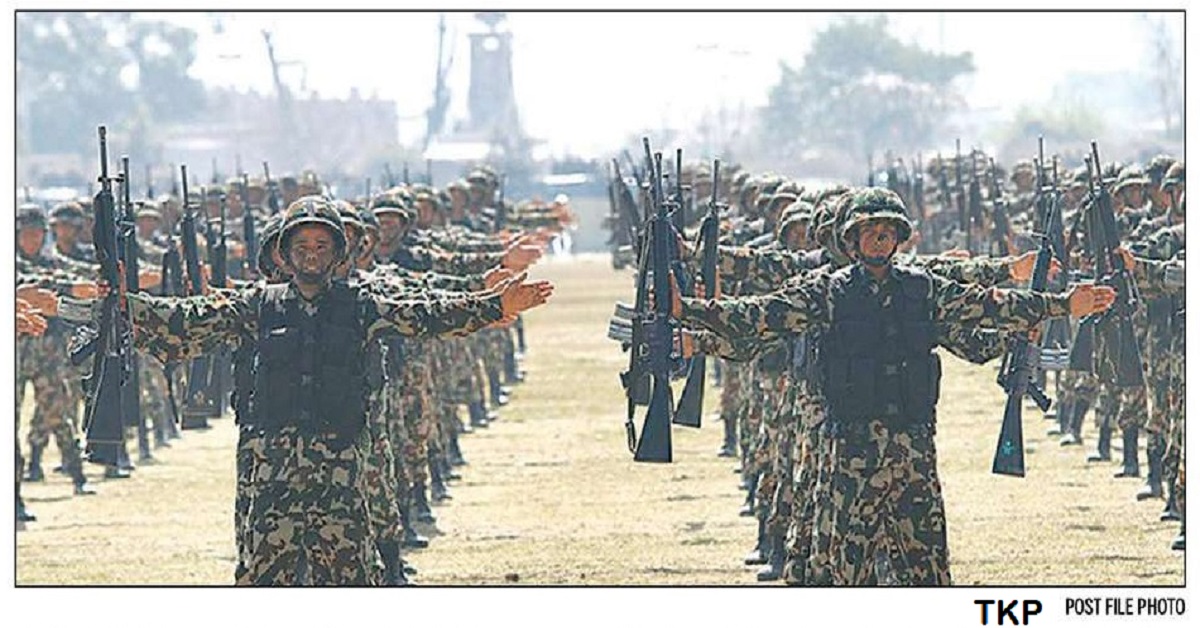
NARENDRA B RAWAL
BIMSTEC war games
Nepal should dispel any unease the exercise may have aroused among neighbours
The Bay of Bengal Initiative for Multi-Sectoral Technical and Economic Cooperation (BIMSTEC) has called for strengthening cooperation and coordination between the law enforcement and security agencies of the member states and holding home minister-level meetings following the recent conclusion of the Kathmandu Summit. The thrum declared that combating terrorism and transnational organized crime required sustained efforts and cooperation and a comprehensive approach involving active participation and collaboration of the member states. Conceivably in this vein, BIMSTEC military exercise has been scheduled to take place in the second week of September in Pune, India. Given the immediacy and continuity of the event, it has prompted several questions. War games are conducted basically to simulate military operations of a different nature where the militaries employ military and other resources to explore the effects of operations or test strategies and plans without actual combat. They not only serve as a deterrence but also the purpose of maintaining operational readiness. Given the foreign policy and limited resources, the Nepal Army's emphasis has been on enhancing its operational and tactical `interoperability measures' with other participants to achieve common goals at various levels in a pure non-conventional arena of military engagement. As a policy support measure, the Nepal Army has been participating for a long time not only in the bilateral arrangements, such as with the armed forces of India, China and the US but also in large military involvement consisting of many armed forces in Asia and Europe. It has been learned that the aim of the military exercise in Pune, India is to promote strategic alignment among the member states and share best practices in counterterrorism. They will also work to develop operational concepts suitable to counterterrorism in a semi-urban environment. The chiefs of the participating armies are scheduled to deliberate on the challenges of terrorism and transnational crimes and how they can promote collective cooperation in different aspects of the last two days of the exercise. This arrangement was initiated by the host country and accepted by the member states long before the Kathmandu Summit. With the view of sharing best practices in disaster risk reduction and strengthening regional response, the first BIMSTEC Disaster Management Exercise 2017 was organized by the National Disaster Response Force, India in Delhi. India is most likely to participate in Shanghai Cooperation Organisation (SCO) military drills for the first time, which is to be held in Russia next month. Nepal is likely to receive membership in the SCO soon. Against this background, it is just to explain that in the wake of globalization and interdependence between countries, the scope of military involvement as a means to achieving common goals is not likely to shrink but grow. Therefore, activities regarding development, diplomacy, and security are inseparable in both concept and execution. However, a security partnership between member states and the desired results did not happen under the aegis of the South Asian Association for Regional Cooperation (SAARC). The holding of the first BIMSTEC mili-tary exercise—when an older regional organisation such as SAARC has not been able to hold its 20th summit due to strained relations between India and Pakistan—is being interpreted by many as an attempt to replace the SAARC arrangement and grad-ually alienate Pakistan from the region. Hopefully, this may not be the true design; yet, given the subtlety of circumstances and our crucial geostrategic position, Nepal seems to have been put in a state of distress vis-a-vis its close relations with northern neighbour China and Pakistan, a friendly nation in South Asia. All military exercises—especially in non-traditional sectors like peacekeeping, disaster (rescue and relief) management, anti-terrorism and transnational crimes—have been crucial to all nations regardless of whether their political systems are lib-eral or despotic. In fact, it has been felt
POST FILE PHOTO that a systemic and emulative sharing of experience can prove to be inductive for members with an autocratic system. Therefore, it is be inappropriate for some to stress that a country like Nepal with a non-aligned foreign policy should not join such military events. Despite the overriding significance of BIMSTEC's institutional, economic and technological interests, the security agen-da precedes all others. Perhaps, if the mili-tary exercise had been planned alongside other activities such as the drafting of the charter or drawing a plan to promote intra-BIMSTEC tourism, reactions to the war games wouldn't have been this intense. This event has thus brought about certain unease in the affairs of the coun-try. It is, therefore, hoped that the Nepal government finds ways to mend the dam-age in its diplomatic sphere and approach-es India and other partners to consider other priorities simultaneously.
Rawal is a retired major general in the Nepal Army.





